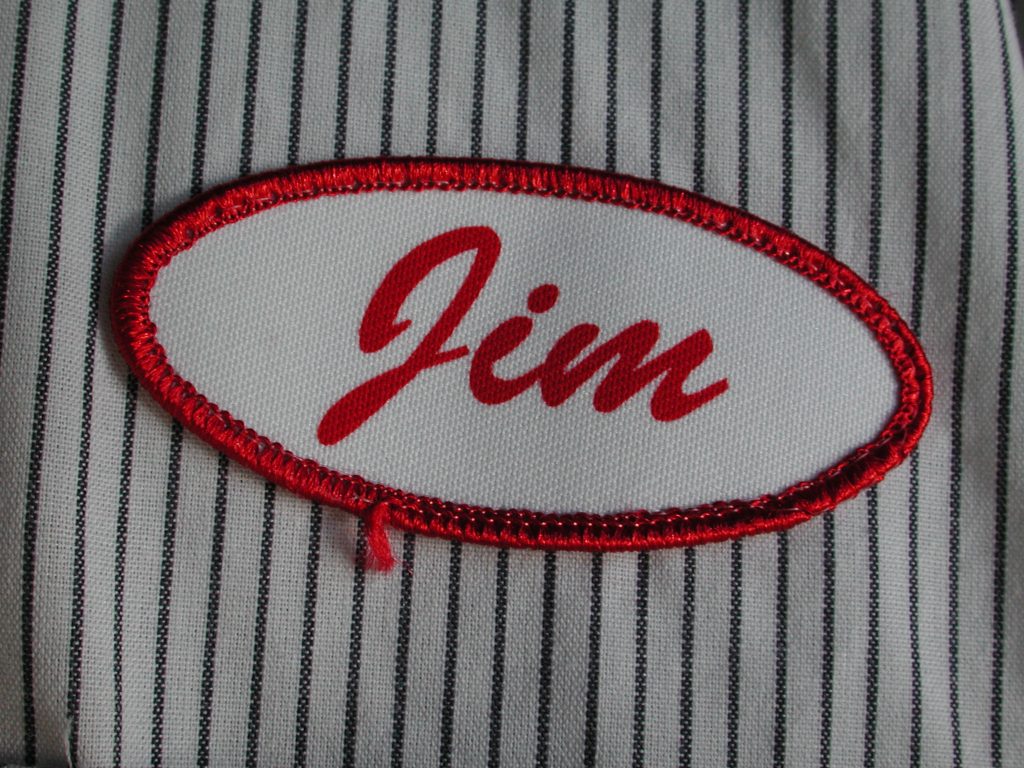 Ever wondered about the seemingly daunting world of contracts: the myriad of pages and often boring mechanical reading, not to mention those terms and conditions written in legalese? For most of us, not really. That’s for sure. But sometimes contractual disputes can be interesting. Ever hear the saying don’t mix business with pleasure? Well in a recent case, the Louisiana Court of Appeal was called upon to rule upon the terms of a settlement agreement that prohibited the parties from making disparaging or negative comments about each other.
Ever wondered about the seemingly daunting world of contracts: the myriad of pages and often boring mechanical reading, not to mention those terms and conditions written in legalese? For most of us, not really. That’s for sure. But sometimes contractual disputes can be interesting. Ever hear the saying don’t mix business with pleasure? Well in a recent case, the Louisiana Court of Appeal was called upon to rule upon the terms of a settlement agreement that prohibited the parties from making disparaging or negative comments about each other.
In 2006, Mary N. Boros and Mark Lobell, after having a four-month sexual fiasco entered into a Settlement Agreement. The Settlement Agreement contained the terms and conditions for the termination of their professional and personal relationship. A settlement agreement is a form of contract and just like any other contract its terms can be breached, or in other words dishonored by one or both of the parties who entered into the contract. The Settlement Agreement here contained, among other provisions, a provision where Mary and Mark agreed not to say or author anything that disparages, criticizes, defames or otherwise reflects negatively upon the name of the other (the “non-disparagement” clause).
From September 22, 2003, through October 6, 2006, Mary was employed by a Louisiana company, Performance Medical, Inc. The company owned by Mark. While Mary was employed by Performance Medical she engaged in a consensual sexual relationship with Mark, which lasted for approximately four months. The facts are up in the air as to the circumstances surrounding Mary’s eventual termination from Mark’s company, but after Mary threatened to file a sexual harassment lawsuit against Mark the parties entered into the Settlement Agreement. The controversy arose when Mary began a competing limited liability company named Specialized Diagnostics, L.L.C., and Mark allegedly infringed on her business by among other things making defamatory statements which included statements to the effect that Mary’s business practices were illegal. So, on December 18, 2007, Mary filed a petition for damages against Mark and his companies, alleging that he and/or members of his staff violated the non-disparagement clause of the Settlement Agreement.
 Louisiana Personal Injury Lawyer Blog
Louisiana Personal Injury Lawyer Blog


 When someone with a family and a business suddenly dies, sensitive estate issues arise and can often become complicated, especially if the decedent was in the midst of strained business negotiations or when the death was the result of a suicide. In these situations, it’s essential for surviving family members to hire a good attorney in order to keep a stressful situation from deteriorating further. The following case illustrates such a situation.
When someone with a family and a business suddenly dies, sensitive estate issues arise and can often become complicated, especially if the decedent was in the midst of strained business negotiations or when the death was the result of a suicide. In these situations, it’s essential for surviving family members to hire a good attorney in order to keep a stressful situation from deteriorating further. The following case illustrates such a situation. Ponzi schemes ultimately come to an end and unfortunately cause a lot of pain, suffering, and litigation. The Stanford Ponzi scheme is no exception. As demonstrated in the following case, the complex nature of such schemes demonstrates the need for excellent legal representation if you are the victim of an unscrupulous Ponzi schemer.
Ponzi schemes ultimately come to an end and unfortunately cause a lot of pain, suffering, and litigation. The Stanford Ponzi scheme is no exception. As demonstrated in the following case, the complex nature of such schemes demonstrates the need for excellent legal representation if you are the victim of an unscrupulous Ponzi schemer. This post continues our discussion on the United States Fifth Circuit Court of Appeal’s analysis of the public policy exception in
This post continues our discussion on the United States Fifth Circuit Court of Appeal’s analysis of the public policy exception in  The world we live in today is more interconnected than ever before. International commerce has led to rapid economic development in the United States and abroad. As more and more firms participate in international commerce, complex legal disputes arise. International disputes involve a multitude actors of different nationalities, implicating various national and international legal frameworks. In the mid-20th century, the United States and countries around the world sought to harmonize international commerce by codifying rules governing the resolution of international disputes. As a global commercial hub, United States courts have been pivotal in interpreting these international rules and more generally, contributing to the development of private international law. In 2015, the United States Fifth Circuit Court of Appeal interpreted the
The world we live in today is more interconnected than ever before. International commerce has led to rapid economic development in the United States and abroad. As more and more firms participate in international commerce, complex legal disputes arise. International disputes involve a multitude actors of different nationalities, implicating various national and international legal frameworks. In the mid-20th century, the United States and countries around the world sought to harmonize international commerce by codifying rules governing the resolution of international disputes. As a global commercial hub, United States courts have been pivotal in interpreting these international rules and more generally, contributing to the development of private international law. In 2015, the United States Fifth Circuit Court of Appeal interpreted the  This post follows up on our discussion of the Louisiana Supreme Court’s 2015 ruling requiring that a contradictory hearing is held before striking a defendant’s deficient answer and entering a
This post follows up on our discussion of the Louisiana Supreme Court’s 2015 ruling requiring that a contradictory hearing is held before striking a defendant’s deficient answer and entering a 
 Good news for professionals; potentially bad news for consumers. Affixing a professional seal to a document does not alone expose a professional to liability if the professional does not directly offer any services to the consumer. The Louisiana Fourth Circuit Court of Appeal recently heard a case that dealt with this very issue.
Good news for professionals; potentially bad news for consumers. Affixing a professional seal to a document does not alone expose a professional to liability if the professional does not directly offer any services to the consumer. The Louisiana Fourth Circuit Court of Appeal recently heard a case that dealt with this very issue. When entering into a contract it is important to read all the terms, especially the general provisions near the end of the agreement. Oftentimes those provisions state that a party must waive their right to a jury trial and settle all disputes arising from the contract by arbitration. Arbitration is an alternative to the judicial system when it comes to settling disputes. Each party chooses an arbitrator, which is usually a lawyer or former judge with experience in the subject matter, and then agree on a third, neutral arbitrator to comprise a panel. Generally, their decision is binding and final. It pays to hire a good attorney if you find yourself on the wrong end of an arbitration decision.
When entering into a contract it is important to read all the terms, especially the general provisions near the end of the agreement. Oftentimes those provisions state that a party must waive their right to a jury trial and settle all disputes arising from the contract by arbitration. Arbitration is an alternative to the judicial system when it comes to settling disputes. Each party chooses an arbitrator, which is usually a lawyer or former judge with experience in the subject matter, and then agree on a third, neutral arbitrator to comprise a panel. Generally, their decision is binding and final. It pays to hire a good attorney if you find yourself on the wrong end of an arbitration decision. Parties to a lawsuit are required to submit evidence in support of their claim. Depending on the piece of evidence, the court may demand very specific evidence; and in such circumstances, complying with the mere spirit of the order to produce evidence may not be enough for the court. A party who does not provide the evidence requested by the court may be held in contempt as one Louisiana plaintiff recently found out the hard way.
Parties to a lawsuit are required to submit evidence in support of their claim. Depending on the piece of evidence, the court may demand very specific evidence; and in such circumstances, complying with the mere spirit of the order to produce evidence may not be enough for the court. A party who does not provide the evidence requested by the court may be held in contempt as one Louisiana plaintiff recently found out the hard way.